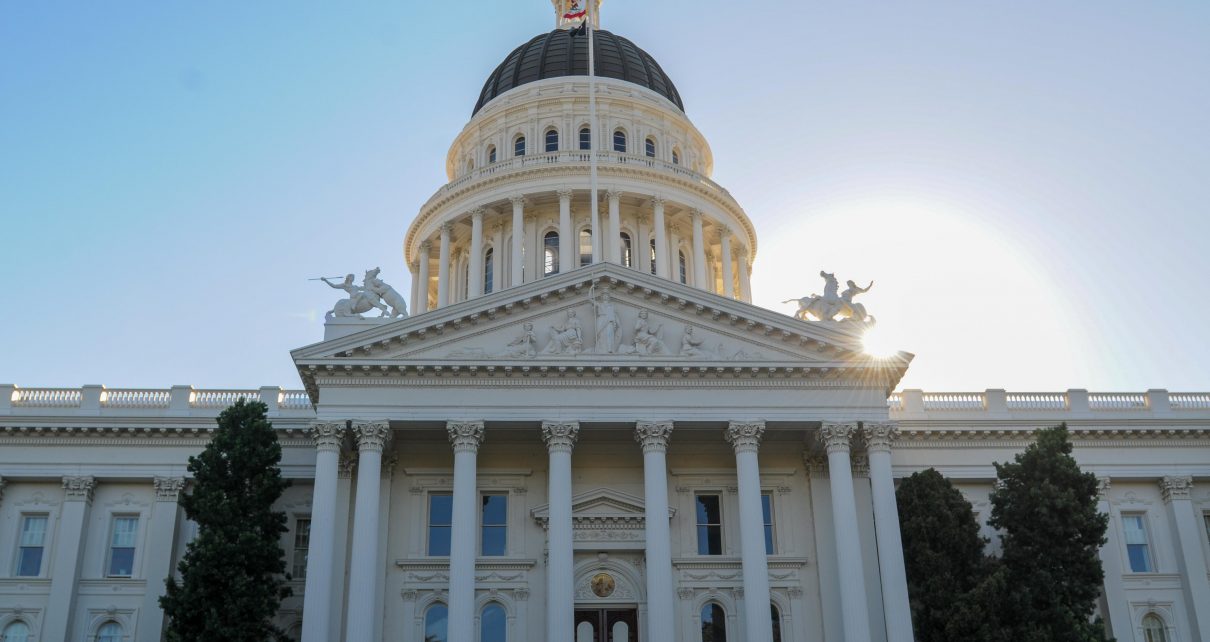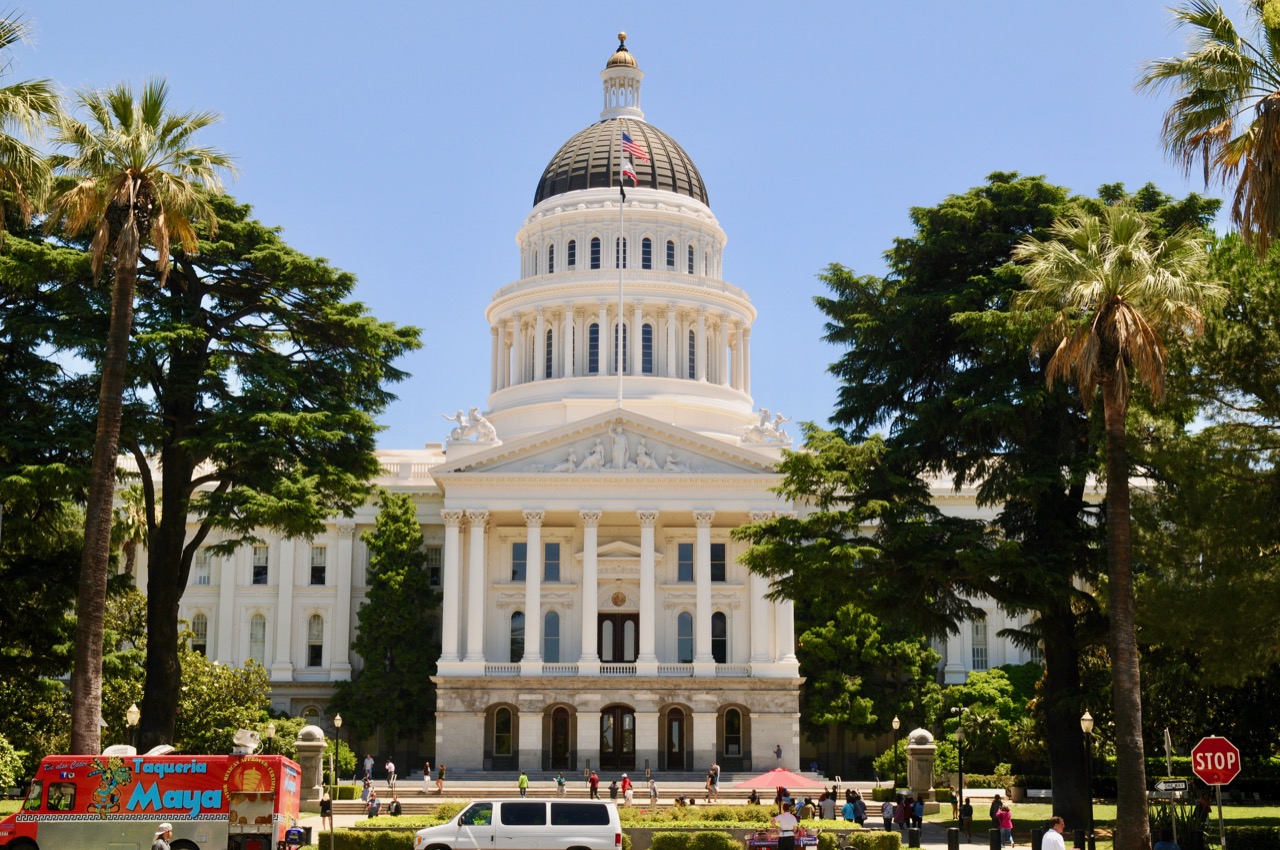
California State Capitol. (Photo: Kevin Sanders for California Globe)
Frequently Asked Questions about Filling a California Constitutional Office Vacancy
What is an example of a recent gubernatorial appointment to a constitutional office?
By Chris Micheli, January 19, 2024 2:45 am
Where in state law is the filling of a constitutional office vacancy? It is contained in the state Constitution, in Article V, Section 5, which provides for filling a vacancy in a constitutional office.
What are the nine constitutional offices in California? They are Governor, Lieutenant Governor, Attorney General, Board of Equalization Members, Controller, Insurance Commissioner, Secretary of State, Superintendent of Public Instruction, and Treasurer.
When are constitutional officers elected? They are elected on the statewide ballot every four years.
Who fills a vacancy in the office of Governor? A vacancy in the office of Governor is filled by the Lt. Governor.
How are the other constitutional offices filled in this state? Section 5(a) of Article V provides “Unless the law otherwise provides, the Governor may fill a vacancy in office by appointment until a successor qualifies.” As a result, the other offices can be filled by a gubernatorial appointment.
What else does the state Constitution provide? Specifically, Section 5(b) of Article V provides, in part, “Whenever there is a vacancy in the office of the Superintendent of Public Instruction, the Lieutenant Governor, Secretary of State, Controller, Treasurer, or Attorney General, or on the State Board of Equalization, the Governor shall nominate a person to fill the vacancy…”
How does a gubernatorial appointment work? Pursuant to Section 5(b), once nominated by the Governor, the appointed person takes office upon confirmation by a majority of the membership of the Senate and Assembly. Once confirmed by both houses of the Legislature, the person holds office for the balance of the unexpired term.
What is an example of a recent gubernatorial appointment to a constitutional office? In 2021, after former Secretary of State Alex Padilla was named a United States Senator to fill the vacancy created by the election of former U.S. Senator Kamala Harris to become the Vice President of the United States, Governor Gavin Newsom named former Assemblywoman Dr. Shirley Weber to fill that vacancy. Both the Assembly and Senate voted to confirm her nomination.
What happens if one or both houses of the Legislature do not confirm a gubernatorial nominee? Section 5(b) also provides, “In the event the nominee is neither confirmed nor refused confirmation by both the Senate and the Assembly within 90 days of the submission of the nomination, the nominee shall take office as if he or she had been confirmed by a majority of the Senate and Assembly.” As a result, if the gubernatorial nominee is not confirmed by either house, or neither house rejects the nominee, within 90 days, then the nominee takes office.
What happens if a gubernatorial nominee is confirmed by only one house and the nomination is rejected by the other house? In the case of Lungren v. Deukmejian, the California Supreme Court in 1988 stated, “We conclude that section 5(b) requires confirmation by both houses of the Legislature unless it fails to act on a nomination within 90 days, in which case the nominee is deemed to be confirmed under the second sentence of the provision. When, as here, one house votes to disapprove a nominee, the nomination is rejected, just as in other matters requiring legislative action.”
What happens if the 90-day review period concludes while the Legislature is out of Session? If the 90-day period ends during a recess of the Legislature, the period is then extended until the sixth day following the day on which the Legislature reconvenes.
Are there any California statutes on constitutional office vacancies? Yes, in addition to Section 5 of Article V, there are several provisions in statute dealing with vacancies. These provisions are found in the Government Code, Title 1 (General), Division 4 (Public Officers and Employees), Chapter 4 (Resignations and Vacancies), Article 2 (Vacancies). These provisions are in Section 1770 – 1782.
What does Government Code Section 1770 provide? It specifies the different circumstances in which an office becomes vacant, basically on the happening of any of the events occurring before the expiration of the term that are listed in this section. There are 13 such event happenings specified in this code section.
What does Government Code Section 1775 provide? It deals with vacancies in any of the constitutional offices. It contains the same language from Article V, Section 5(b). In addition, it contains the following provision: “After a vacancy has occurred in an office specified in this section and prior to the time such vacancy is filled as provided in this section, the chief deputy to the above constitutional officers shall discharge the duties of the office.”
- Wildlife Management Areas - March 3, 2026
- County Revenues for Fish and Game - March 3, 2026
- Designating ‘Spot’ Bills in the California Legislature - March 2, 2026




